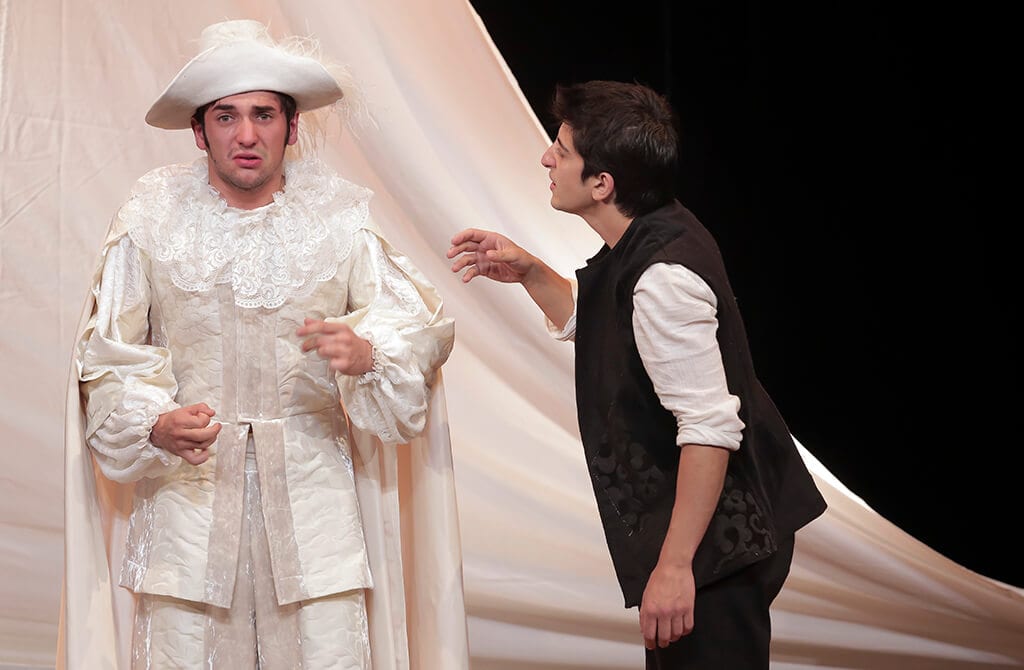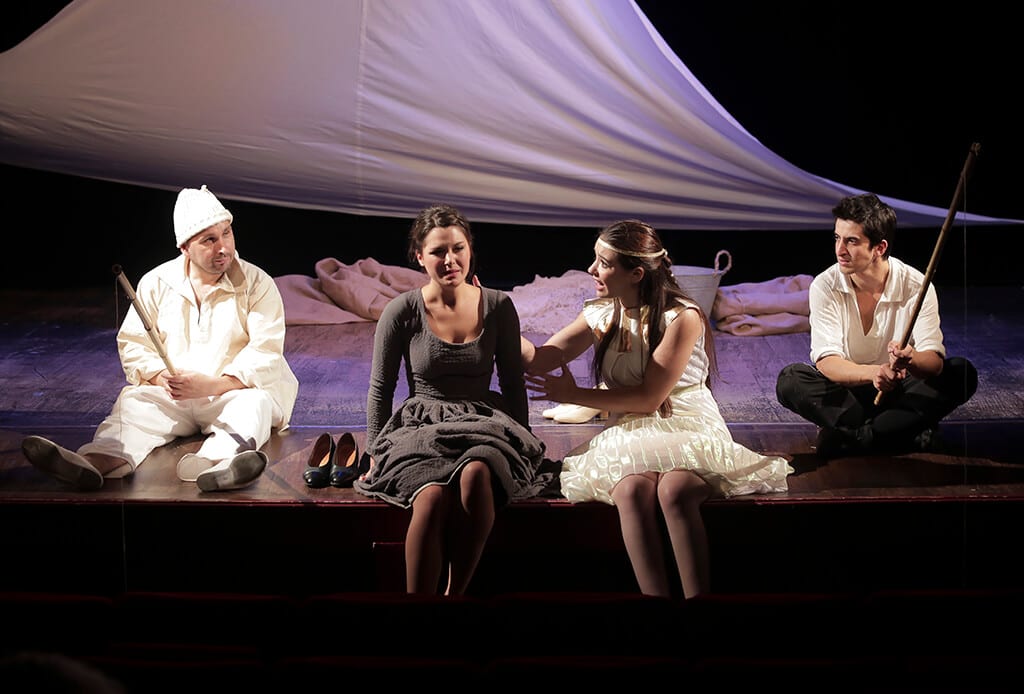Les Fourberies de Scapin (Scapin the Schemer) is one of Molière’s most famous plays, first staged in 1671 in the theatre of the Palais-Royal in Paris.
The production, directed by Jean-Philippe Daguerre attempts to appeal to all age groups. Unfortunately it ends up as little more than a humorous show for children. This comedy of Molière’s is especially inspired by the Italian commedia dell’arte which was created for a popular audience in the sixteenth century. According to the conventions of the time, characters are created to be naive, but not to be silly as they are represented (or played) in this staging.
During the absence of his father, Argante, Octave decided to marry a poor girl of unknown origin called Hyacinte. However his father plans to marry him to the daughter of his friend Geronte, and therefore Octave fears the return of Argante, who does then return earlier than expected. As for Geronte’s son, Leandre, he falls deeply in love with Zerbinette who has arrived from Egypt. Scapin, is Leandre’s valet: he creates strategies, every one more absurd than the last, to allow the two young men to marry their loved ones.
Although it’s an ambitious project to make this play accessible, the result is disappointing. Actors are exaggerated in their playing, with too much yelling and falsetto, depriving them of any credibility. Fortunately Kamel Isker embodies perfectly the role of Scapin. He is extremely talented, dynamic and completely involved in his role and in the play. His body language is very demonstrative: it shows how much Scapin is doing to succeed in his task. The very individual voice of the comedian makes you want to listen to every word he says, unlike the other comedians on the stage.
It is true that children in the theatre were laughing during most of the play, thanks to comedians who were pulling a face to the audience for the duration of the representation. But this meant that the play was closer to vaudeville than to Moliere’s creation.
This play should be a timeless French comedy classic with lots of romance and even more treachery. There was, however, nothing classic about this representation.


